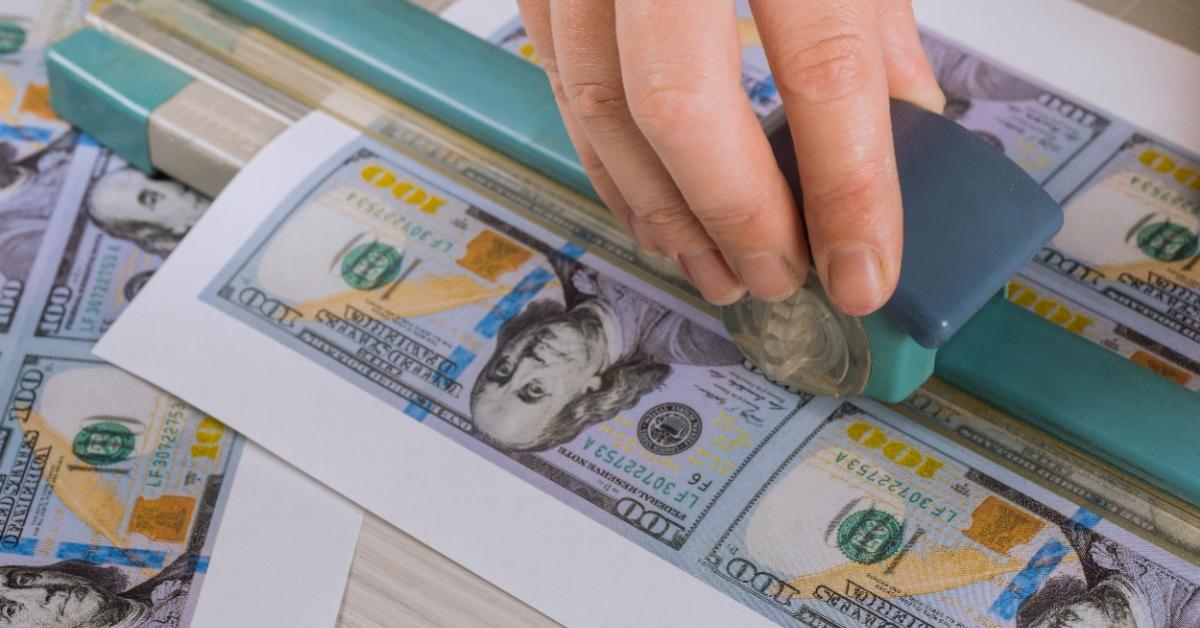Intellectuals and politicians often try to verbally summarize or justify conventional thinking in pithy ways. Milton Friedman (in 1965) and Richard Nixon (in 1971) both said different versions of the phrase “we are all Keynesians now.” . . . Friedman and Nixon were describing the thoughts behind the implementation of Great Society redistribution programs and an inflationary monetary policy designed to offset the cost of those programs.
—Brian Wesbury and Robert Stein, We Are All Keynesians Now
If there is one central myth supporting the folly that passes for monetary policy and by extension fiscal policy, it would have to be the unchallenged assumption that money should be defined and controlled by government.
Given the role of money in the economy—that it serves as a trade intermediary, one half of virtually every transaction—nothing has been more destructive to the well-being of most people than the government’s usurpation of money from the market.
Money was once the most marketable commodity, albeit a special commodity. Unlike other commodities such as oil or corn,
gold lasts forever. If someone uses gold, it remains to be used again. . . . If oil production stops, so does our supply of oil. If gold mining stops, we don’t lose our supply. All gold ever mined is still here with us and will stay with us forever.
Today, money is whatever the government says it is, and since 1933 in the US, it has been pieces of paper or their digital substitutes issued by the central bank and its members, the commercial banks.
What’s wrong with having the government or its agent, the central bank, define money and regulate its supply, which in practice means regulating the rate at which the supply is increased?
First, the money is not theirs—it doesn’t belong to the government or the central bank. Banks legitimately get their funds from depositors or investors. Anything they create on their own through fractional-reserve lending is fraudulent because they’re guaranteeing the same dollar to both a borrower and a depositor. Government gets its revenue through the threat of violence (taxes) and cannot rightfully claim ownership of any of it.
Property rights violations notwithstanding, why is this a harmful arrangement economically? Because the government-supported banking system is a counterfeiting racket. The act of counterfeiting money consists of duplicating the legal tender or standard currency and passing it off as legitimate. The counterfeit money does not represent goods or services produced. The subsequent increase in the supply of money puts downward pressure on the purchasing power of the monetary unit so that holders of previously existing money are in effect paying for the counterfeiter’s purchases.
Murray Rothbard discusses the counterfeiting process in his book What Has Government Done to Our Money?:
Counterfeiting is evidently but another name for inflation—both creating new “money” that is not standard gold or silver, and both functioning similarly. And now we see why governments are inherently inflationary: because inflation is a powerful and subtle means for government acquisition of the public’s resources, a painless and all the more dangerous form of taxation. (emphasis added)
And according to Keynes, not “one man in a million” is able to detect the theft—which apparently includes economists who believe “inflationary monetary policy . . . offsets the cost of those [Great Society] programs.”
Kings of old could debase their coins and pass them off as the real thing, but this was a slow, tedious process that didn’t yield much revenue. Not only that, people grew wise to it and found ways to tell a cheat from a genuine article. And they saw it as a cheat, not as a way of increasing gross domestic product, or making the price of exports more competitive, or stabilizing the price level.
Paper money changed all that.
People deposited their gold and silver in banks for safekeeping, then used the paper claims to the metal as convenient substitutes for money. Bankers soon proved they couldn’t be trusted. When note holders and depositors came running to redeem their rightful claims and the banks proved unable to comply, the government allowed the banks to turn them away empty-handed while remaining in business.
Slamming the doors on legitimate note holders and depositors was embarrassing to the banks, not to mention unprofitable. Thus, in the US the biggest bankers got the government to impose the Federal Reserve on our lives. Economist Joe Salerno describes Rothbard’s view of the Fed as “a cartelizing device that limits entry into and regulates competition within the lucrative fractional-reserve banking industry and stands ready to bail it out, thus guaranteeing its profits and socializing its losses.”
“Socializing its losses”—that’s where we come in.
For a few years there was a serious problem with this arrangement: gold stood in the way. From the counterfeiters’ perspective, the beauty of paper money was that it all looked the same.
Gold was subsequently framed as one of the causes of the Great Depression, and by decree paper, the money substitute, became money itself. The president the people elected seized their gold and locked it up in the United States Bullion Depository at Fort Knox. As dollars can now be created with a few keystrokes, it has proven trivial to fund trillion-dollar deficits.
Today, the rich are getting richer and the poor are getting poorer not because of “capitalism,” but because of a government-supported monetary system that enriches designated counterfeiters and their beneficiaries at the expense of other dollar holders.
Milton Friedman, in my view, penned the most important statement ever on monetary policy: “If a domestic money consists of a commodity, a pure gold standard or cowrie bead standard, the principles of monetary policy are very simple. There aren’t any. The commodity money takes care of itself.”
Given that monetary policy today consists of varying degrees of counterfeiting, we need to get government out of the way and let the market-designated money—whatever it may be—take care of itself.



























